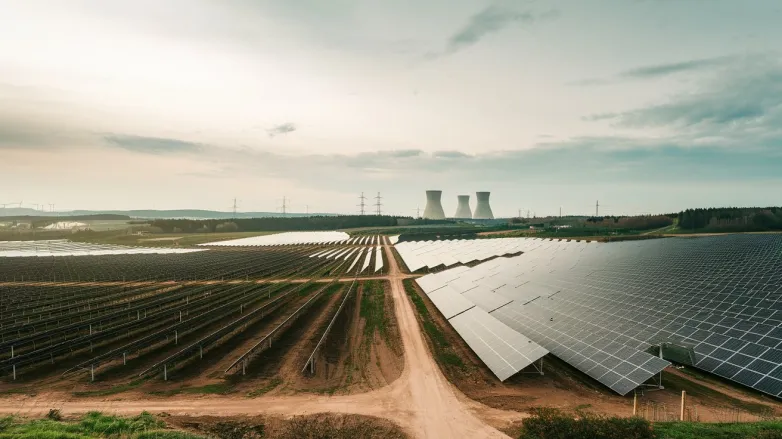Uzbekistan Launches Solar Partnership with World Bank Support
- Uzbekistan partners with the World Bank to build a 100 MW solar plant, powering 60,000 homes and cutting carbon emissions significantly by 2025. Sustainable energy takes center stage!

Uzbekistan is advancing its renewable energy efforts by partnering with the World Bank Group to construct a 100-megawatt solar power plant in the Khorezm region, backed by $3.5 million in World Bank financing. This funding serves as a payment guarantee for the state-owned National Electric Grid of Uzbekistan (NEGU), which will purchase electricity from the plant, scheduled to commence operations in November 2025. The solar facility, developed by Voltalia's Sarimay Foreign Enterprise LLC, is expected to generate over 240 gigawatt-hours of energy annually, reducing carbon emissions by over 230,000 metric tons and supplying clean electricity to approximately 60,000 households.
The World Bank has played a critical role in supporting Uzbekistan's renewable energy transition, highlighting its goal to achieve 25 GW of capacity to satisfy 40% of the country’s electricity consumption by 2030. Since 2020, the World Bank Group has facilitated the development of 1,000 MW of solar and 500 MW of wind energy projects in Uzbekistan, providing payment guarantees and attracting investment to enhance the clean energy sector. Notable projects include Uzbekistan's first 100 MW solar plant in Navoi and upcoming renewable initiatives in Bukhara and Navoi regions, underscoring the nation's commitment to sustainable energy solutions.
How is the World Bank supporting Uzbekistan's solar energy development and sustainability goals?
Uzbekistan is taking significant strides toward renewable energy development, particularly in solar energy, with robust support from the World Bank. Here are some key contributions and initiatives from the World Bank aimed at bolstering Uzbekistan’s solar energy growth and sustainability objectives:
- Financial Assistance: The World Bank has provided $3.5 million in financing as a payment guarantee, facilitating transactions between energy producers and the National Electric Grid of Uzbekistan (NEGU).
- Investment Mobilization: Through its funding and guarantees, the World Bank helps attract additional investments from global partners into Uzbekistan’s renewable energy sector, creating a more robust financial ecosystem for new projects.
- Capacity Building: The World Bank is involved in enhancing local expertise and technical skills through training programs and workshops, ensuring that local teams can effectively contribute to the renewable energy projects.
- Policy Support: The World Bank collaborates with the Uzbekistan government to develop policies that promote renewable energy investments, including structuring Power Purchase Agreements (PPAs) that increase investor confidence.
- Project Diversity: The partnership underscores the development of a diverse energy portfolio, supporting not just solar power but also wind energy projects, reflecting a balanced approach to renewable resources.
- Regulatory Framework Development: The World Bank assists in evaluating and improving the regulatory frameworks that govern the energy sector in Uzbekistan, creating a more favorable environment for renewable energy investments.
- Environment and Sustainability Focus: Beyond immediate energy output, the World Bank emphasizes sustainable practices that minimize environmental impact, aligning with Uzbekistan's broader sustainability goals.
- Long-term Vision Alignment: The collaboration supports Uzbekistan’s long-term plans to achieve a target of 25 GW of renewable energy capacity by 2030, contributing to a substantial portion of the national energy mix and reducing dependency on fossil fuels.
- Renewable Energy Strategy Implementation: The World Bank aids in the rollout of specific renewable energy strategies that detail actionable steps, timelines, and measurable outcomes, assisting Uzbekistan in tracking its progress.
- Public Awareness and Outreach: Initiatives supported by the World Bank also involve efforts to increase public awareness of renewable energy benefits, fostering community support and participation in sustainability initiatives.
- Impact Assessment: The World Bank is involved in evaluating the social, economic, and environmental impacts of renewable energy projects, ensuring that they align with sustainable development goals.
Through these comprehensive efforts, the World Bank significantly contributes to Uzbekistan's vision of enhancing its renewable energy capacity while fostering environmental sustainability and economic development.
Also read

